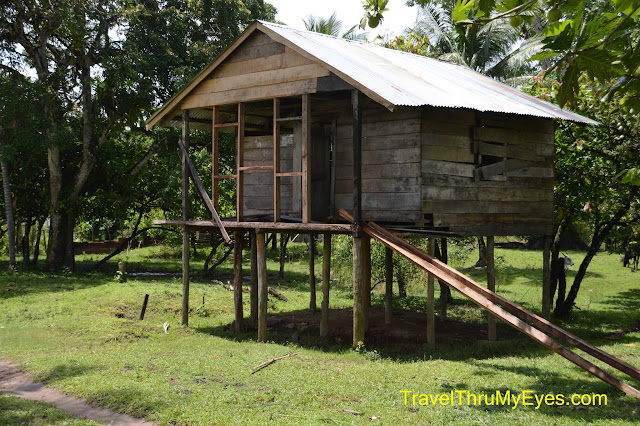Almost two weeks into a three week journey, we have left Guatemala. Landing in Managua Nicaragua in the early morning hours we had a four hour layover before our flight to Waspam (some maps spell it Waspan).
Where the hell is Waspam, Autonomous Region of the Northern Atlantic, Nicaragua? It's a small village located on the Rio (River) Coco, which separates the countries of Honduras and Nicaragua.


With plastic laminated boarding passes in hand, we boarded our twelve seat, prop aircraft for a 90 minute flight.
Waspam
isn't a huge tourist location, but it is host to ministry trips
throughout the year. This being the rainy season, albeit a fairly dry
one, Amanda and I were among the few 'non-natives' in the area.
The roads in the town are paved, but the runway is dirt.
Your travels outside of town will be via boat or on dirt roads; we did both.
 |
| Waspam runway from the ground |
 |
| Waspam runway from the air |
Arriving late afternoon and departing around noon two days later, this was basically a one day stop.
Once we got checked in the Hotelito El Piloto, we walked every paved road in town. When we returned to the hotel we talked to Erma the hotel owner who arranged for a boat trip to villages along the river that are unassailable by road in the morning and a road trip in the afternoon.
SHOTS FROM WASPAM
 |
| Boats used by locals |
 |
| Housing along the river |
 |
| The main church in town |
 |
| We were 'watched' all over town; as a foreigner get used to it |
 |
| Meals cooked to order at the Hotelito El Piloto |
Due to its location, the price of gas in Waspam is well above the national average, so trips, especially boat trips can be costly. We arranged for a four hour trip, which covered over 55 miles of river for a cost of $110USD.
After a 26 mile, non-stop ride up-river we stopped at the village of San Jeronimo.
 |
| The port of Waspam; walking to our boat |
|
|
 |
| Our boat captain |
 |
| Leaving the port |
HOMES ON THE RIVER
While many of these homes have no visible signs of 'modern' conveniences, all the people that we saw up and down the river smiled, waved, and looked like they were enjoying life 'off the grid'.
MODES OF RIVER TRANSPORTATION
The majority of watercraft are home made boats, some with motors others without, and of course a few rafts were also seen. As you'll see, the only capacity limit is keep the water out of the boat.
 |
| Drag net fishing |
STOP ONE - SAN JERONIMO
 |
How do you get a boat; you make it
|
STOP TWO - BULL SIRPE
STOP THREE - WIS WIS
 |
| This is more than a washtub |
 |
| It's her boat |
 |
| Yes, they start them young |
Returning from the river ride, we ate lunch, and waited for the taxi that Erma had arranged for us to visit some nearby villages. This was scheduled as a three hour trip but due to raining in the afternoon, we shortened it to two hours. The cost for this was $30USD; boats take a whole lot more gas than cars.
On this tour, we again visited three villages; Ulwas, Saupuka, and Bilwaskarma. Even though these villages were accessible by roads, the 'modern' conveniences were not visible in all the homes.
 |
| Typical road for this trip |
TYPICAL HOMES IN THE AREA
FAMILIES and CHILDREN AT PLAY
 |
| Play with what you have |
 |
| Even baseball is played off the grid |
 |
We got caught in a downpour so the playing children joined us on a porch
|
Our stop in Waspam has come to an end, next stop Granada. See you there.




























































No comments:
Post a Comment